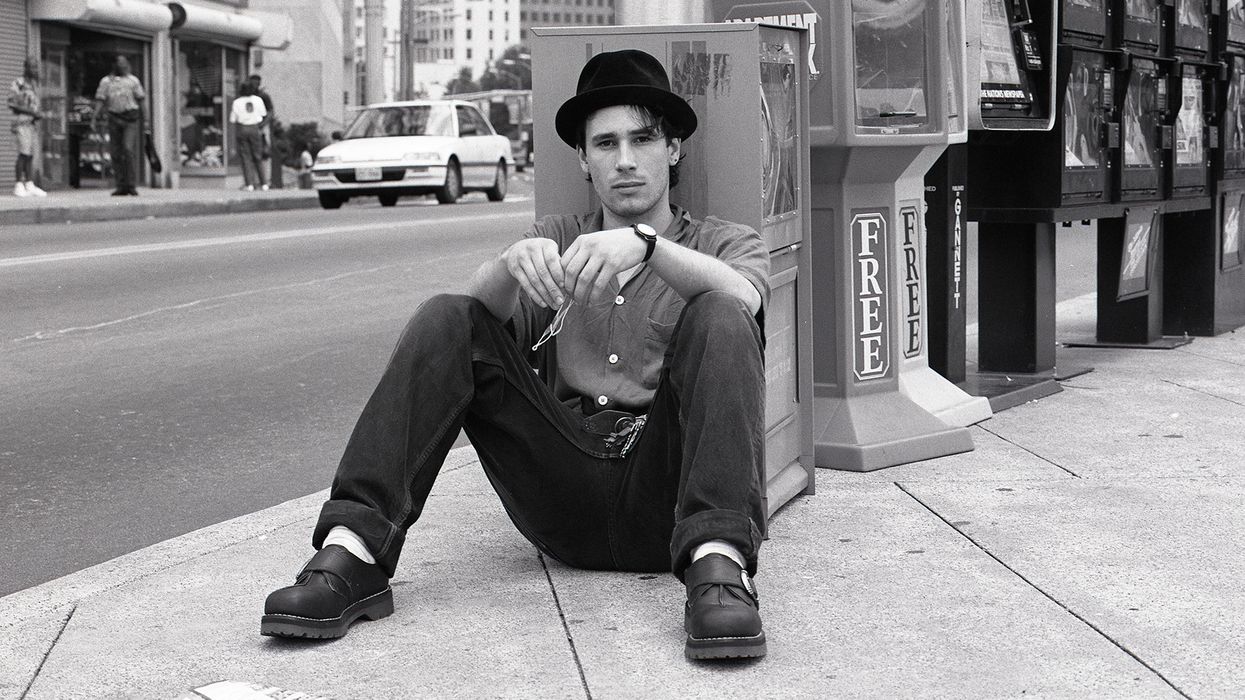What happens when a domestic abuser has access to a firearm? Ask the family members of Diane Psaros, or Cassandra Jones, or baby Miranda Salley, all of whom were shot and killed by domestic abusers.
Today, in U.S. v. Rahimi, the U.S. Supreme Court upheld a federal law prohibiting the possession of firearms by anyone subject to domestic-violence restraining orders. The court ruled 8-1 that the law should be upheld.
“The Second Amendment permits more than just those regulations identical to ones that could be found in 1791,” Chief Justice John Roberts writes in the majority opinion. “Holding otherwise would be as mistaken as applying the protections of the right only to muskets and sabers.” He adds later that the law must comport with “the principles underlying the Second Amendment,” but says “it need not be a ‘dead ringer’ or a ‘historical twin.’”
Several of the justices wrote or joined concurrences.
Thomas, the lone dissenter, does not agree with Roberts’ interpretation. “Not a single historical regulation justifies the statute at issue,” he writes in his dissent, taking a hard line on originalism. Thomas notably wrote the Supreme Court’s 2022 decision in New York State Rifle & Pistol Association v. Bruen, whichinvalidated many gun control laws.
Attorney and domestic violence advocate Kim Sport is relieved the federal law was upheld. “The Supreme Court made the correct decision,” she says. Sport adds that it’s crucial to keep in mind that the point at which a survivor asks for a protective order, they are often at one of the most vulnerable points in their relationship.
“It’s the point where a victim is finally making a stand,” says Sport, a Republican who fought for stricter gun regulations for domestic abusers in Louisiana. “It takes on average at least seven attempts for a victim to take action against their abuser. That separation — it’s the first time an abuser is losing control over his or her victim and it enrages them. It is absolutely the worst and most dangerous time.”
“Waiting until the abuser has a conviction before taking their gun away will often mean waiting until it’s too late,” Janet Carter tells Rolling Stone. Carter is a former Supreme Court clerk who currently works at Everytown Law, a gun safety team of litigators. “It’s just common sense, domestic abusers should not have access to guns. And the Constitution just absolutely does not require that result because of the centuries-long tradition of prohibiting dangerous individuals from accessing weapons.”
The Rahimi decision focuses on a Texas man named Zackey Rahimi, whose case challenged the constitutionality of a federal law that bans individuals who are subject to domestic abuse protective orders from owning firearms. The question presented to the court is whether “18 U.S.C. 922(g)(8), which prohibits the possession of firearms by persons subject to domestic violence restraining orders, violates the Second Amendment on its face.”
According to court records, in December 2019, Rahimi physically assaulted his then-girlfriend in a parking lot and shot at a bystander who witnessed the assault. In February 2020 his ex was granted a two-year protective order against him, which suspended his handgun license and prohibited him from possessing firearms. He was later arrested for violating the protective order, and charged with aggravated assault with a deadly weapon when threatening another woman with a gun. He then participated in a series of five shootings, which eventually led to a federal indictment for possessing guns while under a restraining order.
After the Supreme Court’s 2022 Bruen decision established a new test for gun laws, a conservative appeals court reheard the case. The Fifth Circuit Court of Appeals ruled that Rahimi, “while hardly a model citizen,” is “entitled to the Second Amendment’s guarantees.” The Fifth Circuit ruled the gun restriction against Rahimi should not stand, because, according to the majority opinion, they said there was no tradition of such gun bans in U.S. history.
The Biden administration asked the Supreme Court to weigh in. “Governments have long disarmed individuals who pose a threat to the safety of others, and Section 922(g)(8) falls comfortably within that tradition,” argued U.S. Solicitor General Elizabeth Prelogar in a brief.
Domestic abuse survivors, advocates and victims’ families have expressed gratitude and relief at the Supreme Court’s ruling. For the families of victims killed by domestic violence, they want people to understand that this is genuinely a matter of life or death. And many of them have become advocates, fighting for laws that protect future victims so that more families don’t have to join them in their grief.
“It’s too easy for abusers to get weapons,” says Alexi Slater, whose cousin Diane Psaros, 42, was shot and killed, along with her fiance, by her estranged husband this past December in Oregon. Psaros’ mother Cathie Psaros said that if her daughter had been granted the protective order she’d requested against her abusive husband, she might still be alive today.
“It would have been a lot harder for [her ex] to get a hold of an AR-15 with a restraining order against him,” Cathie tells Rolling Stone in a phone interview. “Taking the guns away, it gives [abusers] maybe a chance to cool off before they do something stupid.”
Diane Psaros is remembered as a happy, gentle, but fiercely brave mother and former public school teacher who had a gift for supporting students. Her memorial service was so crowded that people had to watch her funeral service on monitors from elsewhere in the building.
In 2022, Diane was turned down after requesting a protective order detailing instances of alleged prior abuse including sexual assault, threats of homicide and suicide, and drug use. She specified an instance where she entered into a walk-in closet where her estranged husband was sitting inside with a gun and threatened her repeatedly.
A year and a half later, her ex murdered Diane, her fiance Brian Rolen, and her son’s dog. Her ex drove toward his mother-in-law’s house, where her teenage son Sean was staying, and ended up dying by suicide after a standoff with police.
The presence of a gun in a domestic abuse situation makes it five times more likely that a woman will be killed. During the oral arguments in Rahimi, Prelogar referenced data that domestic violence calls are the most dangerous type of call for a police officer to respond to in the U.S.
Supreme Court Chief Justice John Roberts asked Rahimi’s federal public defender, Matthew Wright, “You don’t have any doubt that your client’s a dangerous person, do you?”
Wright later argued that historically, “Society understood violence, understood dangerous people […] But they rejected at every point the type of dangerousness disarmament principle that the government is advocating.”
In an amicus brief urging the court to side with Rahimi, the National Rifle Association wrote “Civil protective order deprivations are inconsistent with the history and tradition of firearms regulations.” The NRA argued that a protective order should not be enough to take away someone’s guns. “Traditionally, people needed to be convicted before they could lose their Second Amendment rights.”
Domestic abuse survivor Kris Barney vehemently disagrees with the NRA’s stance. “Regardless of a conviction or not, I don’t think that domestic abusers who have been arrested for domestic abuse or have a restraining order against them, deserve to have any gun rights whatsoever.”
Barney’s ex-husband killed their three-year-old daughter Miranda Salley, as well as his most recent ex-girlfriend at the time, in January 1999 in Louisiana. Police shot him to death on the scene when he refused to put down his gun. Barney says she had fought for years against him having joint custody of their daughter, but that despite his stalking conviction and Barney’s testimony that he’d threatened to kill her and their baby, she was denied. “There was never any evidence of physical violence, so no one believed I was being abused,” said Barney. She says both she and Miranda had protective orders against her ex, who was accused of emotional and verbal abuse.
“Here I am, 25 years later, still fighting for victims,” says Barney. “I’m not going to be silent. Giving abusers rights to guns if they have a restraining order, is just saying, ‘Here go ahead and kill them. Because we’re not going to do anything about it.’ How many women and children and men have to die before people take gun violence seriously?”
Barney says that the Supreme Court reaffirming that domestic abusers can be dispossessed of their firearms helps survivors in their fight to find safety and is “a big step in protecting vulnerable individuals from violent partners and parents.”
Jania Blount, Jaylan Blount, and Akila Jenkins are three sisters whose mother Cassandra Jones was shot to death by her ex-boyfriend in June 2022 in New Orleans. The video of her murder went viral on social media, and the images of their mother crying out for help still haunt her daughters to this day. “The inability to sleep at night because of this horrifying memory is deeply traumatizing and heartbreaking,” Jones’ daughter said in a statement to Rolling Stone.
Jones had filed a temporary restraining order the month before she was killed, but because her ex didn’t show up to court for the protective order hearing, the TRO expired. (TRO’s have no effect on firearm ownership.) Jones’ daughters, like many of the victims’ family members who spoke with Rolling Stone, are turning their grief into activism for stricter gun laws to protect those suffering from domestic abuse. With the Rahimi decision, the hope is that this will help support their advocacy.
“Revoking gun rights from abusers could significantly reduce the risk of such tragedies occurring,” Jones’ daughters say. “We are without our mother due to domestic abuse and gun violence. No one should have to endure such pain and loss.”
If you or someone you know is being abused, you can seek anonymous, confidential help at the National Domestic Violence hotline: 1-800-799-7233 (SAFE).














 Catering Presented By The Food DudesPhoto by Snapdrg0n
Catering Presented By The Food DudesPhoto by Snapdrg0n Catering Presented By The Food DudesPhoto by Snapdrg0n
Catering Presented By The Food DudesPhoto by Snapdrg0n Catering Presented By The Food DudesPhoto by Snapdrg0n
Catering Presented By The Food DudesPhoto by Snapdrg0n
 Photographer: Raphaëlle Sohier / Executive production: Elizabeth Crisante & Amanda Dorenberg / Design: Alex Filipas / Post-production: Bryan Egan/ Headpiece: Tristan Réhel
Photographer: Raphaëlle Sohier / Executive production: Elizabeth Crisante & Amanda Dorenberg / Design: Alex Filipas / Post-production: Bryan Egan/ Headpiece: Tristan Réhel Photo: Raphaëlle Sohier
Photo: Raphaëlle Sohier Photo: Raphaëlle Sohier/ Photo production: Bryan Egan/ Blazer:
Photo: Raphaëlle Sohier/ Photo production: Bryan Egan/ Blazer:  Photo: Raphaëlle Sohier/ Blazer: Vivienne Westwood/ Skirt :
Photo: Raphaëlle Sohier/ Blazer: Vivienne Westwood/ Skirt : 

